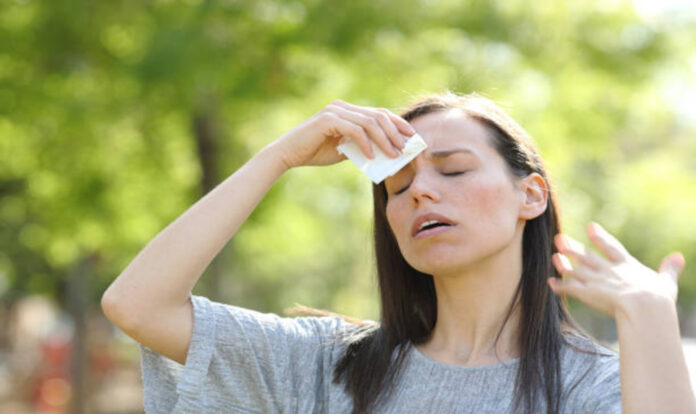In the scorching summer heat, it’s important to be aware of the dangers of hyperthermia. Hyperthermia is a condition characterized by an abnormally high body temperature, usually resulting from prolonged exposure to excessive heat or strenuous physical activity. While many people may experience discomfort during hot weather, hyperthermia can pose serious health risks and even lead to life-threatening situations if not promptly addressed. Hyperthermia can manifest in different forms, including heat cramps, heat exhaustion, and heatstroke.
Heat cramps are painful muscle contractions that can occur during intense physical activity in hot conditions. Heat exhaustion, on the other hand, is characterized by symptoms such as heavy sweating, weakness, dizziness, nausea, and headache. If left untreated, heat exhaustion can progress to heatstroke, which is a medical emergency. Heatstroke is the most severe form of hyperthermia and requires immediate medical attention. It is marked by a core body temperature of 104 degrees Fahrenheit (40 degrees Celsius) or higher.
Heatstroke can cause confusion, seizures, loss of consciousness, organ failure, and even death. It is particularly dangerous for infants, older adults, and individuals with pre-existing medical conditions. Several factors contribute to the development of hyperthermia. High temperatures, high humidity, intense physical exertion, dehydration, and inadequate cooling mechanisms are some common triggers. Certain medications, such as those affecting blood pressure or diuretics, can also increase the risk of heat-related illnesses. Preventing hyperthermia starts with practicing good heat safety habits.
It’s essential to stay hydrated by drinking plenty of fluids, especially water, and avoid excessive alcohol or caffeine consumption, as they can contribute to dehydration. Wearing loose-fitting, lightweight clothing and using sunscreen with a high sun protection factor (SPF) can help protect the body from the sun’s rays. Limiting outdoor activities during the hottest parts of the day and seeking shade or air-conditioned environments are also advisable. If you or someone you know exhibits symptoms of heat-related illness, immediate action should be taken.
Move to a cooler place, loosen tight clothing, and apply cool, wet cloths to the body. Rehydrating with water or oral rehydration solutions is crucial, but it’s important to avoid beverages that can further dehydrate the body, such as sugary drinks or alcohol. In severe cases or when symptoms worsen rapidly, emergency medical assistance should be sought. Hyperthermia is a serious condition that demands attention, especially during periods of extreme heat. By understanding the risks and taking preventive measures, we can ensure our well-being and that of those around us. Remember, staying cool, hydrated, and vigilant is the key to enjoying the summer months while keeping hyperthermia at bay.


